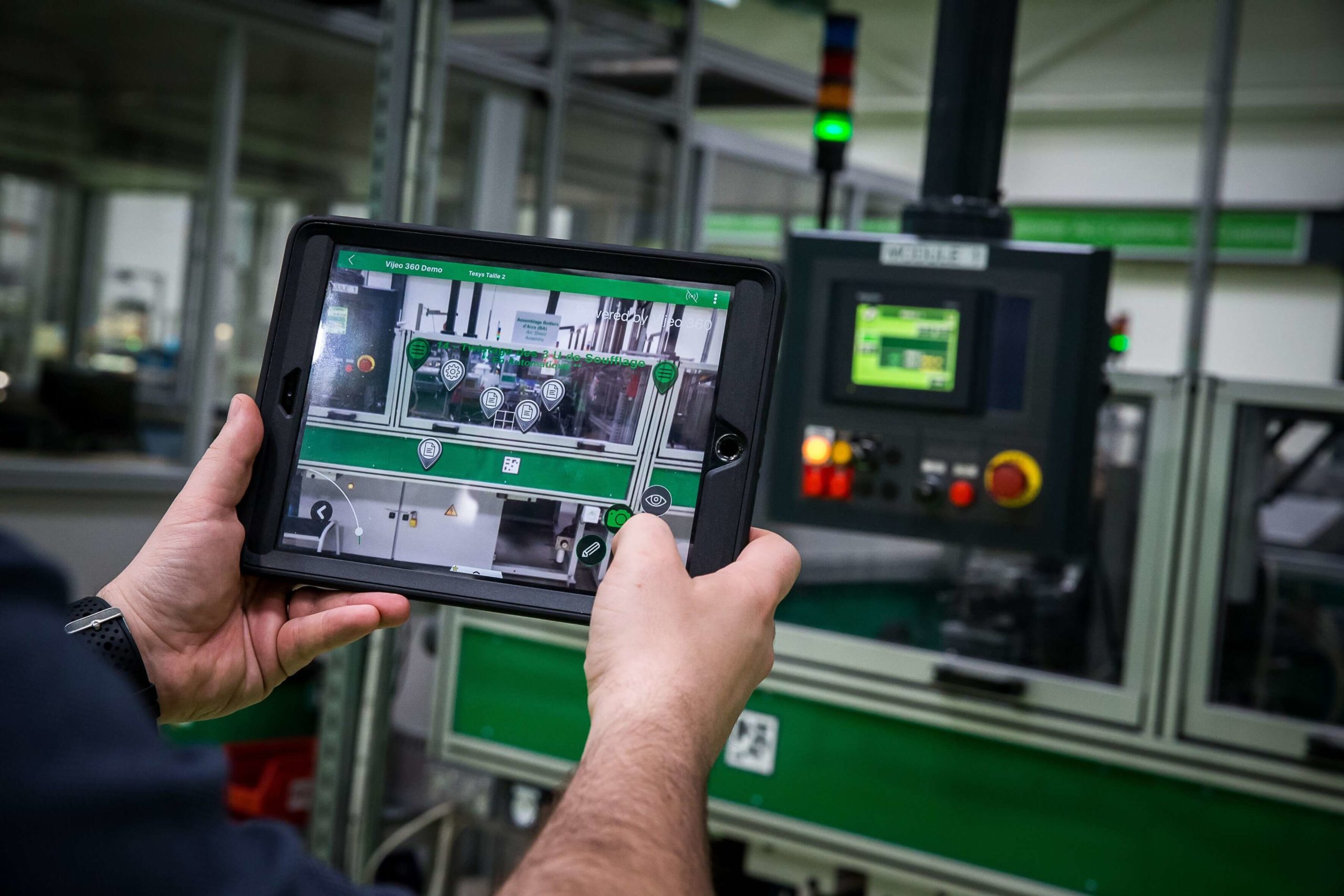Orange and Schneider Electric Run Industrial 5G trials in French Factory
Paris: Schneider Electric, a leader in digital transformation, energy management and automation, and Orange, a global telecoms operator and leader in digital services, announced the first deployment of indoor 5G in the industrial sector in France on experimental frequencies as part of a trial. Operating since March, this first co-innovation project in the Le Vaudreuil factory aims to use 5G in a modern industrial environment to build reliable, scalable and sustainable connectivity solutions for future industrial needs.
Thanks to its low latency, very high throughput and – over time – network slicing, 5G will be a competitive lever for companies, as it will bring noticeable improvement in industrial processes and working methods, especially through mixed reality (augmented and virtual). In the Industrial sector, 5G will help synchronize in real time large amounts of data, which are key to boost performance, facilitate remote working, and ensure optimal production efficiencies.
The indoor 5G-enabled trials will support two use cases: augmented reality applied to maintenance technician activities and the implementation of a telepresence robot for remote visits. Nokia radio AirScale and core equipment has been selected and the experimental frequencies have been allocated by the French regulatory authority. Five indoor 5G antennas were installed inside a part of the factory, covering close to 2,000 m2 of production space with download speeds beyond 1 Gbps, on an experimental network architecture allowing local data processing with edge computing technologies. Building on its co-innovation ecosystem, Orange has proposed to use the recently launched Dell technologies 5G-ready Latitude 9510 business PC to deliver these use cases. This allows Schneider Electric to benefit from the laptop’s embedded computing power, wherever the user is located.
Two 5G Use Cases for Industry
In the first use case tested, the teams connected tablets to 5G using the Schneider Electric augmented reality application called EcoStruxure Augmented Operator Advisor (AOA). This custom application improves operational efficiency with augmented reality, enabling operators to superimpose real-time data and virtual objects onto a cabinet, machine or entire plant. The objective with 5G is to test future functionality with minimum latency and maximum throughput.
Thanks to its scalability, 5G can support growing bandwidth needs and responsiveness. Operators using the AOA application via their 5G-connected tablet film a machine and access information about its status and future maintenance that are hosted in the cloud in real time. This helps reduce machine downtime and streamline maintenance operations, while minimizing human error. For example, temperature data from a coil winding machine can signal when it is overheating, and a part needs to be replaced.
Moreover, production data used by AOA are collected and processed in Schneider Electric’s micro data center solutions (such as Smart Bunker or Micro Data Center 6U Wall Mount), which locally power, cool and protect IT infrastructure. These “all in one” envelopes bring together power, cooling, and urbanization of servers in a secure place. They can support the roll-out of 5G on a new site with its new use cases (augmented reality, AI, IoT).
The second use case tested by Schneider Electric and Orange concerns driving an AXYN mobile telepresence robot using 5G to eventually arrange remote visits to the Le Vaudreuil site. The performance of 5G makes it possible for very high-quality video to be used with minimal lag time in the virtual interactions between the visitor and the Schneider Electric guide that accompanies the robot throughout the Le Vaudreuil site. A remote visit with high-quality video and audio will help minimize travel time and costs and, most importantly, reduce the carbon footprint while providing the end user with a unique experience.
The trial of these first use cases will help capitalize on Orange’s and Schneider Electric’s ability to jointly build and operate a state-of-the-art indoor 5G network in an industrial setting. More experiments will be developed to test technologies with strong potential, such as artificial intelligence, and thanks to future hardware and software updates to the network equipment.
“5G is a breakthrough technology for businesses that will bring numerous industrial applications, such as predictive maintenance, real-time video processing, augmented reality and telepresence. These use cases are powerful and competitive levers that will enable the full potential of Industry 4.0. To make the most of this new mobile network, operators, industrial players, public authorities and companies will have to work together. At Orange, we believe in a co-construction approach. Our co-innovation with Schneider Electric for the factory of the future is an example of this: We are poised to support our industrial partners in their digitalization and in the development of solutions that meet their needs.” said Stéphane Richard, Chairman and CEO, Orange.
“The health, economic and climatic challenges make digitization more important than ever for companies. The pilot conducted with Orange at Le Vaudreuil in a Schneider Electric industrial showcase validates many 5G use cases: augmented reality, remote everywhere, real-time access to data… 5G’s reliability, scalability and durability make it a connectivity solution well adapted to industry 4.0, for greater resilience, competitiveness and sustainability.”, said Jean-Pascal Tricoire, Chairman and CEO of Schneider Electric.

